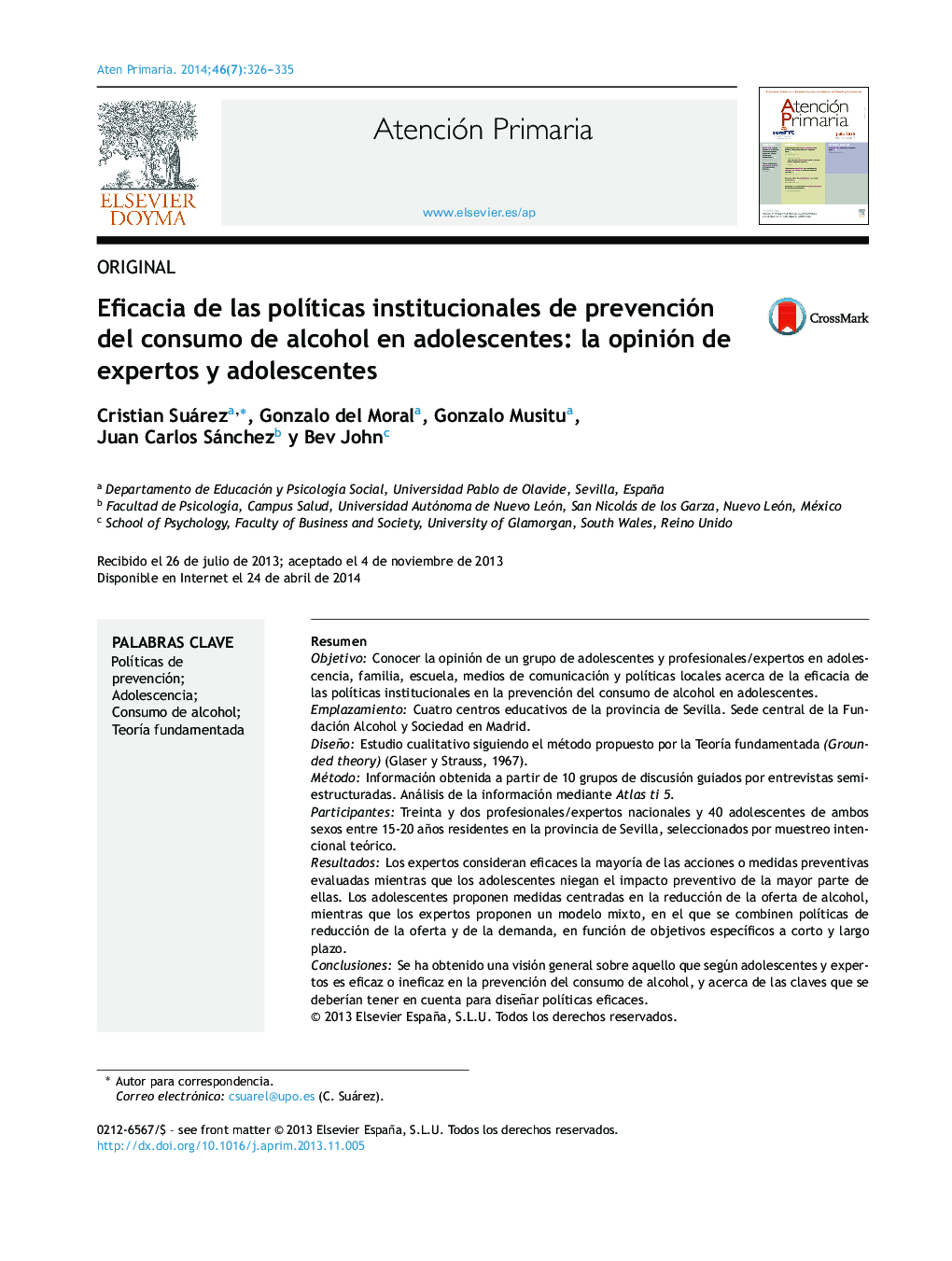| Article ID | Journal | Published Year | Pages | File Type |
|---|---|---|---|---|
| 3457551 | Atención Primaria | 2014 | 10 Pages |
ResumenObjetivoConocer la opinión de un grupo de adolescentes y profesionales/expertos en adolescencia, familia, escuela, medios de comunicación y políticas locales acerca de la eficacia de las políticas institucionales en la prevención del consumo de alcohol en adolescentes.EmplazamientoCuatro centros educativos de la provincia de Sevilla. Sede central de la Fundación Alcohol y Sociedad en Madrid.DiseñoEstudio cualitativo siguiendo el método propuesto por la Teoría fundamentada (Grounded theory) (Glaser y Strauss, 1967).MétodoInformación obtenida a partir de 10 grupos de discusión guiados por entrevistas semiestructuradas. Análisis de la información mediante Atlas ti 5.ParticipantesTreinta y dos profesionales/expertos nacionales y 40 adolescentes de ambos sexos entre 15-20 años residentes en la provincia de Sevilla, seleccionados por muestreo intencional teórico.ResultadosLos expertos consideran eficaces la mayoría de las acciones o medidas preventivas evaluadas mientras que los adolescentes niegan el impacto preventivo de la mayor parte de ellas. Los adolescentes proponen medidas centradas en la reducción de la oferta de alcohol, mientras que los expertos proponen un modelo mixto, en el que se combinen políticas de reducción de la oferta y de la demanda, en función de objetivos específicos a corto y largo plazo.ConclusionesSe ha obtenido una visión general sobre aquello que según adolescentes y expertos es eficaz o ineficaz en la prevención del consumo de alcohol, y acerca de las claves que se deberían tener en cuenta para diseñar políticas eficaces.
ObjectiveThe objective of this study is to obtain the views of a sample of adolescents and experts on adolescence, family, school, local policies and media, regarding the effectiveness of institutional policies to prevent adolescent alcohol use.SettingFour educational centers in the province of Seville. Head office of the Alcohol and Society Foundation in Madrid.DesignQualitative study using the method proposed by Grounded theory (Glaser and Strauss, 1967).MethodologyData were collected from 10 discussion groups guided by semistructured interviews. The data were analyzed using Atlas ti 5 software.ParticipantsA total of 32 national experts and 40 adolescents of both sexes aged 15 to 20 years living in the province of Seville, selected by theoretical intentional sampling.ResultsThe experts believed that most of the evaluated preventive actions were effective, while adolescents disputed the preventive impact of most of them. Adolescents proposed actions focused on the reduction of supply of alcohol. Experts proposed a mixed model as the most effective strategy to prevent alcohol consumption in adolescents, combining supply and demand reduction policies, depending on specific short and long term objectives.ConclusionsWe have obtained, not only an overview of what is working (or not) from the view of adolescents and experts, but also the key points that should be taken into account for designing effective prevention policies.
